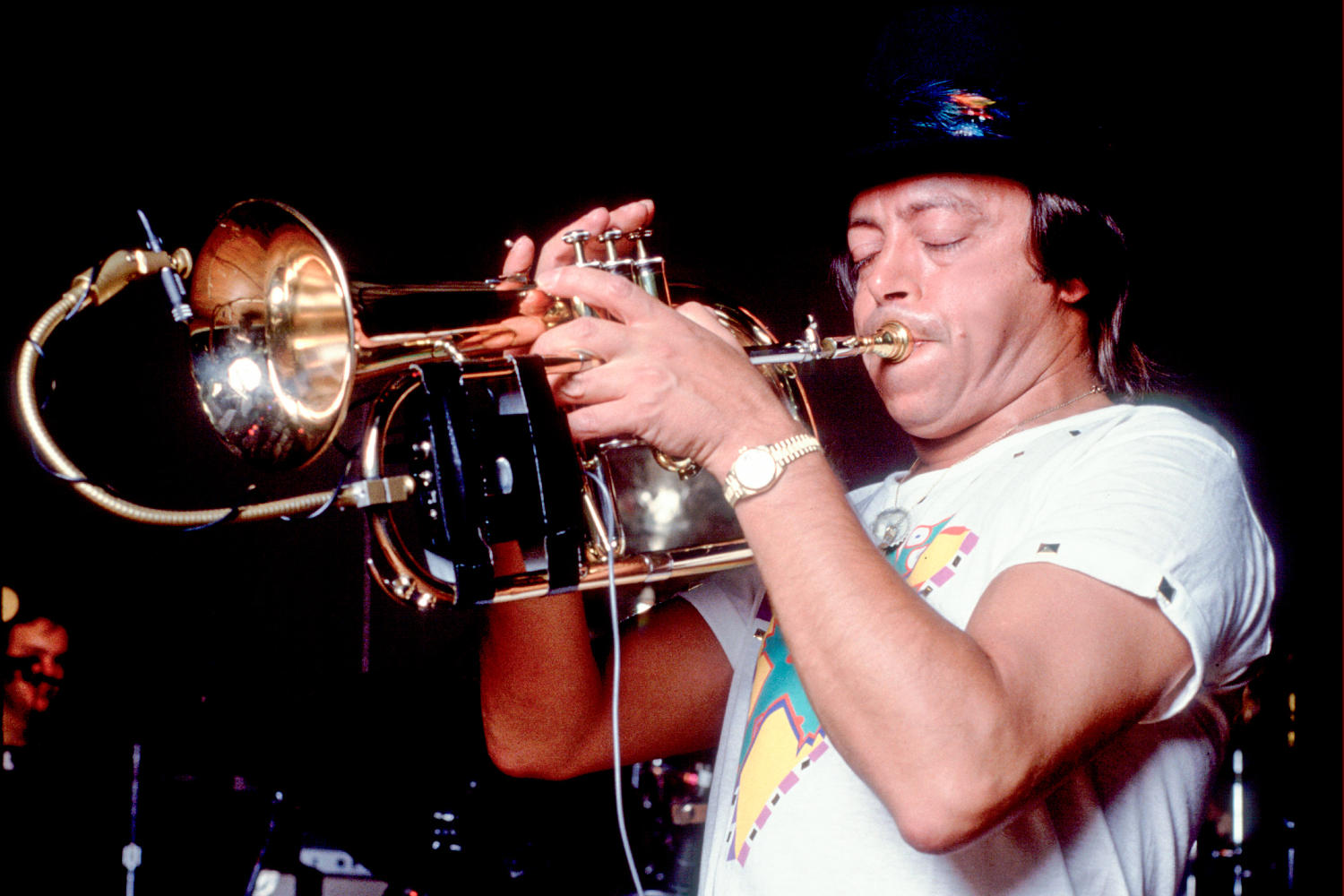Chuck Mangione, jazz musician who crossed over with ’70s pop hit ‘Feels So Good,’ dies at 84


Chuck Mangione, the jazz musician whose “Feels So Good” cracked the top 10 pop chart in the 1970s, died Tuesday, officials said.
He was 84.
Mangione died “peacefully” in his sleep at his home in Rochester, New York, according to his obituary. The mayor of Rochester confirmed his death in a statement praising “the gifted jazz musician and composer.” Mangione’s official cause of death was not announced.
Born in 1940, Mangione grew up in Rochester, graduating from Benjamin Franklin High School before attending and earning a bachelor’s from the Eastman School of Music, also in Rochester.
According to the Bartolomeo & Perotto funeral home, Mangione taught at Eastman and later received an honorary doctorate from the school. He also started the school’s jazz program.
Mangione kicked off his career as a teenage flugelhorn player when he formed the Jazz Brothers alongside his brother, Gap, according to the obituary. It led to a decadeslong career that yielded 14 Grammy nominations — and two wins — an induction into the Rochester Music Hall of Fame and more than 30 albums.
Rochester Mayor Malik D. Evans called Mangione an artist “who earned international distinction, and Rochester’s pride.”
In 1970, Mangione recorded his “Friends & Love” concert with the Rochester Philharmonic Orchestra, which landed him a recording contract and ultimately his first Grammy nomination, according to the funeral home obituary. He released “Bellavia,” a record to honor his mother, in the first year he signed with A&M records, which took home the best instrumental composition award at the 19th Grammys.
Mangione’s biggest hit, “Feels So Good,” soared to No. 4 on the Billboard Hot 100 in 1978 and earned him a nomination for record of the year at the 21st Grammy Awards, bringing the musician to new heights.
In an interview with Celebrity Cafe, Mangione partially credited the Bee Gees for the song’s success, Variety reported.
“I think ‘Feels So Good’ was such a hit because of the Bee Gees,” Mangione said in the interview. “‘Saturday Night Fever’ had saturated radio; I think the top six out of l0 hits were from that album. Radio programmers couldn’t figure out what to put on instead, and when somebody edited ‘Feels So Good’ from nine minutes down to three, they instantly started playing it as an alternative to what were the current top songs.”
Mangione also said he wishes he had written “Feels So Good” in a different key, “as the high D is hard to play.”
“I am glad that I wrote something that brought joy to millions of people,” he said.
In 1980, his song “Give It All You Got” was chosen as the theme song for the Winter Olympics in Lake Placid.
Later in his career, Mangione nabbed a role on the animated hit “King of the Hill,” playing himself as a celebrity pitchman for the fictional Mega Lo Mart.
Speaking to Celebrity Cafe, Mangione reflected on playing the animated version of himself, according to Variety.
“Eight months before ‘King of the Hill’ was on television, I received the script from them, describing my role as the spokesman for ‘Mega Lo Mart.’ … My character would do things like play ‘Taps’ and switch right into ‘Feels So Good,'” which turned into a long-running bit that had Mangione’s character busting out into “Feels So Good” no matter the moment.
“I figured that since they were playing my music and to such a large audience, why not?” Mangione told Celebrity Cafe of taking the role. “So I jumped into the studio in New York; they would call from L.A., and then I’d see a thing that looked like me on the television screen. Many people watch that show, so it is great exposure.”
Mangione and his family were big parts of the Rochester jazz scene, according to Evans, the mayor, who said Mangione and his brother “honed their art forms in Rochester’s legendary Pythodd Club on Clarissa Street, where their family became close friends with Dizzy Gillespie.”
According to Variety, Mangione’s parents were friendly with many of the jazz greats at the time, allowing Mangione to rub shoulders with the likes of Gillespie, Carmen McRae and Art Blakey. He later joined their group, Jazz Messengers, which propelled him into the mainstream of the genre.
On top of their contributions to jazz culture in Rochester, “Chuck and his family epitomized the strength, resilience, and compassion that the people of Rochester are so well known for,” Evans said. The family owned a grocery store in northeast Rochester.
“As the demographic and economic conditions of the neighborhood evolved, the Mangione family remained committed to their customers and the invaluable service their store provided to the community,” according to Evans, who pointed out that Mangione’s Grocery opened every day during the race riots that engulfed the city in July 1964. It was one of the few shops in the area that did not get looted or burned during the riots, Evans said, “which is a testament to the mutual admiration and respect shared between the Mangione family and their community.”
“The many virtues of this upbringing deeply resonate in the music that Chuck Mangione composed and performed on the world stage,” Evans said. “We in Rochester are truly fortunate to hear the underlying beauty of our city in those notes that will forever be Chuck Mangione’s legacy.”




